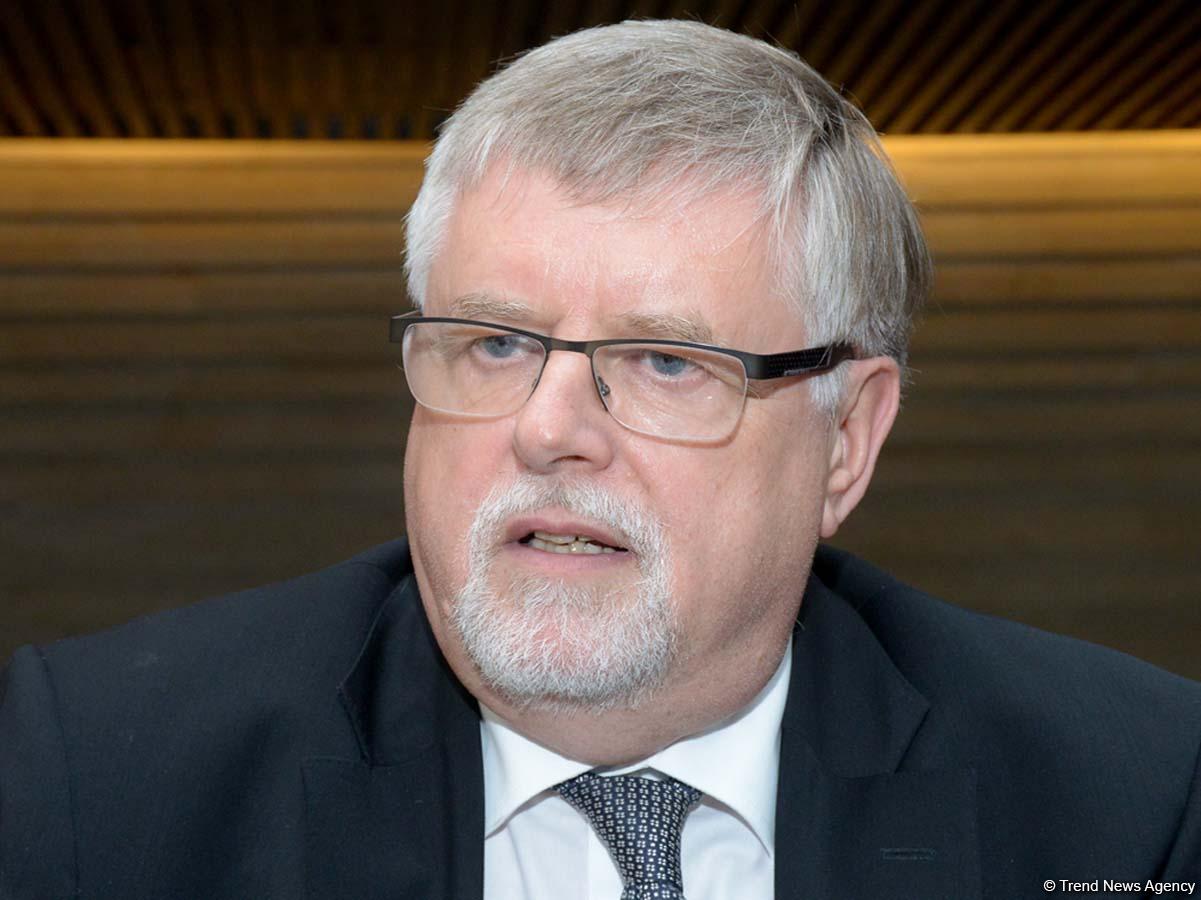Baku, Azerbaijan, Oct. 26
By Anakhanum Hidayatova – Trend:
Herbert Salber, EU special representative for the South Caucasus, hopes that the Nagorno-Karabakh conflict peace talks, connected by the OSCE Minsk Group co-chairs, will lead to an agreement on a meeting of presidents of Azerbaijan and Armenia.
“The EU respects very much that the Minsk Group is the lead…,” Salber, who is on a visit to Baku, said in an exclusive interview with Trend October 26.
He added that the EU wants to be informed about the negotiation process regarding the Nagorno-Karabakh conflict’s settlement.
“That’s why I am here… last week I was in Yerevan for the same purpose,” he said.
“I guess that messages that I get from the visit to the region first to Yerevan and now to Baku, are somehow giving hope that things are going on,” Salber noted. “If my impressions are right, something can be achieved. At the end of the day it has to be a compromise solution.”
He noted that the EU has been promoting the ‘European Partnership for the Peaceful Settlement of the Conflict over Nagorno-Karabakh (EPNK)’ program for years.
The EPNK is a unique initiative funded by the EU that seeks to positively impact the Nagorno-Karabakh conflict settlement process. The EU works with local partners in the South Caucasus on a wide range of peace-building activities to contribute to lasting peace in the region within this initiative.
“We are now starting the first phase,” he said, adding the EPNK aims to bring people together, people on both sides of the contact line.
“We are ready to speak about living peacefully together, about prospects for achieving this,” Salber added.
The EU has allocated new budget for the EPNK and the Union has suggestions to implement projects focused on bringing people together, and these projects should ideally start in late 2016, Salber said.
Salber went on to add that he met IDPs in Baku and it was interesting to talk to these people concerned by the Nagorno-Karabakh conflict, to learn what their feelings are, what their expectations for the future are.
The conflict between the two South Caucasus countries began in 1988 when Armenia made territorial claims against Azerbaijan. As a result of the ensuing war, in 1992 Armenian armed forces occupied 20 percent of Azerbaijan, including the Nagorno-Karabakh region and seven surrounding districts. The 1994 ceasefire agreement was followed by peace negotiations.
Armenia has not yet implemented four UN Security Council resolutions on withdrawal of its armed forces from the Nagorno-Karabakh and the surrounding districts.
Regarding the Azerbaijan-EU relations, Salber said they are certainly in promising period since High Representative of the EU for Foreign Affairs and Security Policy Federica Mogherini visited Azerbaijan in early 2016.
Preparations for new agreements between Azerbaijan and the EU are going on in Brussels, Salber noted and expressed hope that negotiations will start early next year.
---
Follow the author on Twitter: @Anahanum






